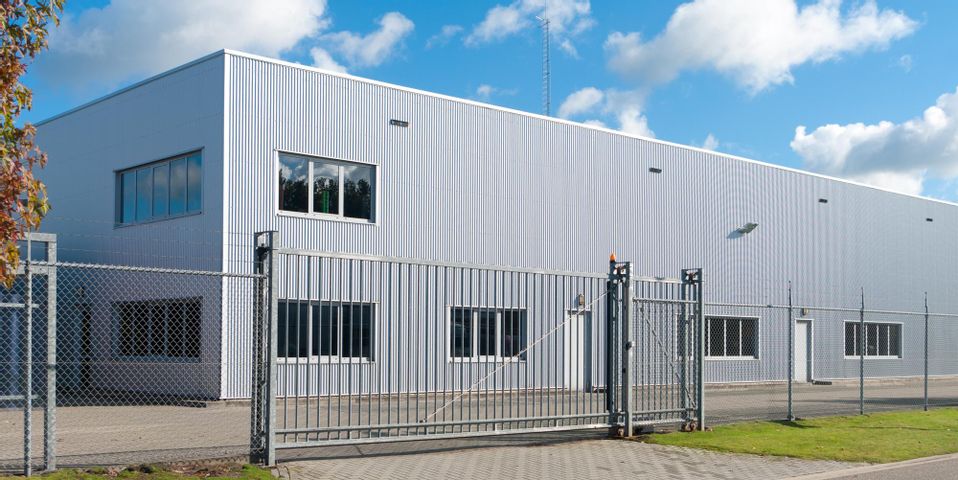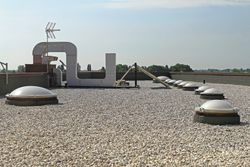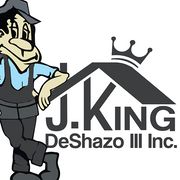
Since company buildings have different functions than houses, commercial roofing is often made of unique materials. However, not all industrial roofing is alike. A contractor may offer a few of the following options depending on the needs and structure of your facility.
What Types of Roofing Have Commercial Applications?
1. Single-Ply Roofing
There are three common types of single-ply roofing styles: EPDM, TPO, and PVC. Using flexible sheets of plastic, these roofs are known for being tough, durable, and well-insulated, guaranteeing strong resistance to impact and weather conditions. Since typically plastic doesn’t absorb as much heat as tar, these roofs can result in lower energy costs. EPDM comes in black and white, so this style of single-ply does have the ability to absorb heat.
Their sheets are lightweight and flexible enough to accommodate unconventional commercial roofing designs. However, their membranes can experience leaks, so you’ll need regular maintenance to ensure they last the expected 20 to 35 years. Some single plies are resistant to ponding water, and are resistant to grease, making them a great install for restaurants.
2. Asphalt Shingle Roofing
Although asphalt shingles are popular for residential roofing, they’re also used for commercial buildings. They boast easy installation, repair, and maintenance. They also come in a variety of textures, shapes, and colors to suit the aesthetic style of your business.
Shingle roofs need annual inspections since pieces can sustain damage from strong winds, UV light, and impact. They’re ideal for buildings that have steep slopes, which allow debris and moisture to slide off. They last around 20 to 30 years.
3. Built-Up Flat Roofing
 Often created from a combination of gravel and tar, these roofs are expensive to install but offer excellent insulation, keeping energy bills low. They’re also highly resistant to damage from water, fire, and UV radiation, making them sturdy choices for the warm and humid climate of Virginia.
Often created from a combination of gravel and tar, these roofs are expensive to install but offer excellent insulation, keeping energy bills low. They’re also highly resistant to damage from water, fire, and UV radiation, making them sturdy choices for the warm and humid climate of Virginia.
These roofing materials are heavy, so your building needs a strong frame. Depending on the materials used, they last between 15 and 30 years.
4. Modified Bitumen Roofing
Though similar in structure to built-up flat roofs, these are fashioned from molten asphalt. Their materials are recyclable, making them eco-friendly. Granulated modifies also resistant to cracking and tearing, even without sealant, so they resist the effects of temperature fluctuations throughout the year. Yes, these are hardy roofs, but the smooth surfaced require coating with aluminum roof coating to get longevity and to prevent from cracking and tearing. In warmer temperatures, they reflect UV rays, keeping buildings cool without overworking HVAC systems.
Their life expectancy depends on how much heat they absorb, but they last around 10 to 20 years.
For a roofing contractor who will help you choose and install the commercial roofing that’s best for your needs, trust J. King DeShazo III in Ashland, VA. Having met their community’s roofing needs since 1977, they provide a range of solutions for all types of buildings. They handle the design, construction, and installation of roofing systems for office complexes, malls, manufacturing facilities, and hospitals. Call (804) 798-7663 to discuss a project or learn more about their commercial services online.
About the Business
Have a question? Ask the experts!
Send your question

